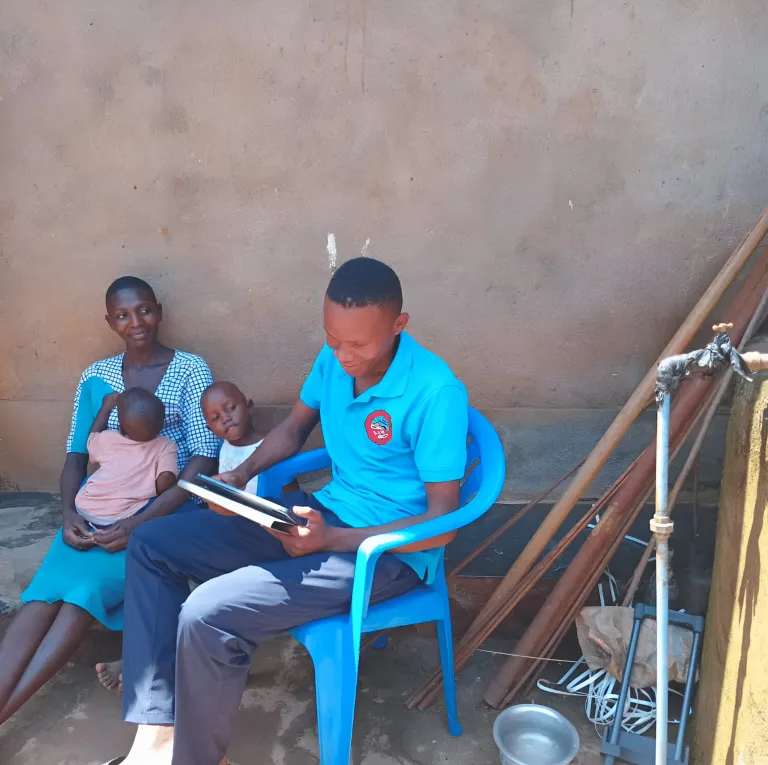By Bena Nekesa
In the heart of Uganda, where the rhythms of life beat to the pulse of tradition, and across the vast expanse of the United States, where modernity intertwines with history, lies a common thread that binds civilizations across time – the census.
The census, an official count of people, is crucial for understanding the demographic makeup of a population to inform decision-making in areas like resource allocation, public policy and infrastructure development. It helps governments plan for the future and ensures equitable distribution of resources and representation.
In the USA, such data is collected on an ongoing basis with the next large census to be conducted in 2030. At that time, residents of the United States and its five territories will be counted, marking the country’s 25th population count since 1790. The process involves sending out questionnaires to every household, which they can fill out online, by mail or by phone. The United States Census Bureau also employs door-to-door visits to ensure an accurate count, especially in hard-to-reach or undercounted communities. The data collected is used to determine representation in Congress and allocate federal funding, among other purposes.
In Uganda, the census has been conducted every 10 years since 1911, with the latest May 10-25.
To assist with this year’s data collection, Uganda Christian University (UCU) released its staff and around 16,000 students to go home for two days at the start of the data collection period with encouragement for more virtual learning and leniency participation in on-site classes during the two weeks that the census was conducted.

This door-to-door process is common in countries with lower internet penetration or literacy rates, where self-response may not be as feasible. Additionally, Uganda’s census involves more manual data collection and processing due to technological obstacles and language differences. Uganda has around 70 spoken languages.
While Uganda data is collected in-person, one difference this time is that the enumerators are entering information electronically via digital phones and tablets.
“Counting people in the country is very useful since it enables the president and cabinet to plan for the citizens and the continent,” said one enumerator, who, like other census takers, makes an average of sh50,000 ($13.31) per day.
In order for the enumerators to get the needed information, they use several questions to acquire the necessary details from their sources of information. The questions in a census typically include inquiries about age, sex, race, ethnicity, household composition, education, employment and housing.
The last Uganda National Population Census was conducted in August 2014. According to the results from 10 years ago, the Uganda population was approximately 34.6 million people. The global population is around 8 billion.
“The enumerator at my home village in Namisidwa interviewed me, but surprisingly, some of the questions were funny. A case in point, how many saucepans do you have, which kind of phone are you having, among several others.” said Zita Mukimba, a student at UCU School of Education. “Missing school because of the counting exercise pained me, but also improved on my understanding about how census is done.”
In 2024 and just like UCU students and staff, Ugandan men and women leave their work places to travel back to their homes to enable the collection of optimum, accurate results without duplication, improving efficiency and effectiveness for the Uganda Bureau of Statistics. The Bureau uses census data, along with other surveys and administrative records, to track progress, implement projects, and make decisions related to needs and service delivery.
The census has been around for quite some time.
It is biblical with references to the counting process in several chapters. The prophet Moses, for example, conducts a census of the Israelites, in the Old Testament book of Numbers. In the New Testament gospel of Luke 2:3, people got their own towns to register for the survey.
Pythagoras, an ancient Greek mathematician and philosopher, is often credited with the phrase, “All things are numbers.” Best known for the Pythagorean theory about a triangle, the 580-500 B.C. truth-seeker saw numbers as fundamental to reality – the essence of all things.
The time it takes for census data to be recorded and made public varies depending on the size of the population and the resources available for data processing. It can take several months to a few years for the data to be fully processed, analyzed, and publicly released in a usable format.


